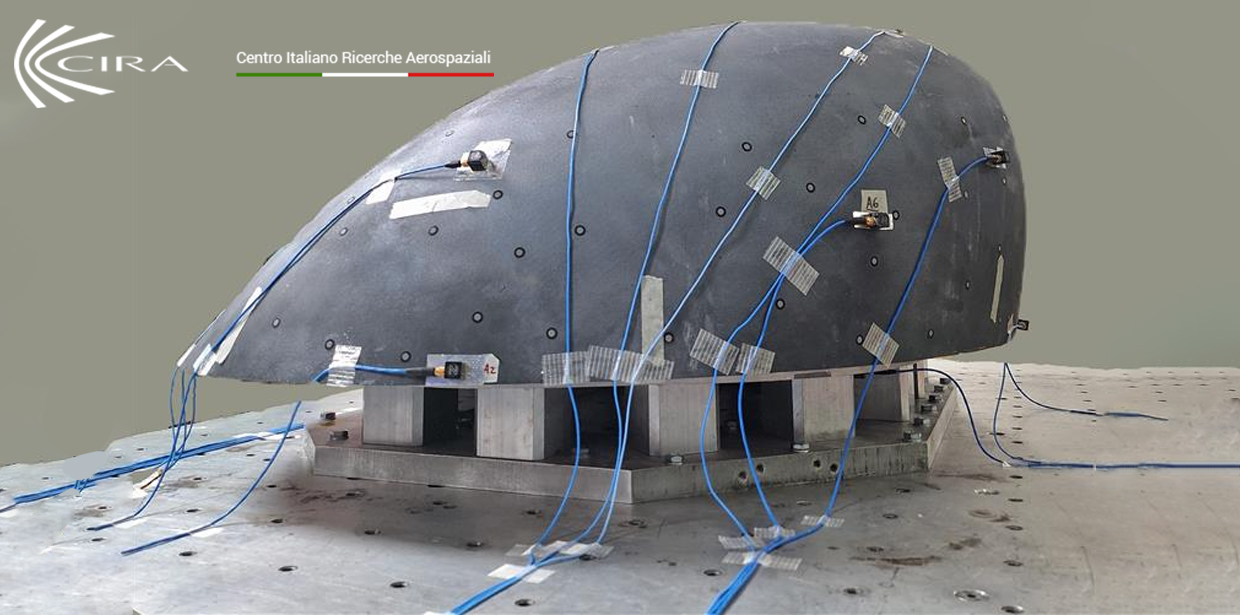Composite Nose of Space Rider Reusable Vehicle Passes Dynamic Qualification Tests
BY Composights
Published: 14 Jul 2025
The nose
of Space Rider, designed by CIRA
and manufactured in partnership with Petroceramics,
has successfully passed its structural
dynamic qualification campaign, confirming full component integrity ahead
of flight unit manufacturing. This milestone marks a key technical achievement
for the Space Rider Re-entry Module (RM),
Europe s first reusable space transportation system developed under the European Space Agency (ESA) program, with
Thales Alenia Space Italia as the prime contractor.
The nose is one of the most complex elements of the Space Rider Re-entry Module Thermal Protection System (TPS), comprising
about 1,200 parts. At the core is a monolithic dome made of ISiComp ,
a reusable fiber-reinforced ceramic matrix composite jointly developed
by CIRA and Petroceramics. With a 130-centimeter
diameter, it is the largest
component ever manufactured using the Liquid Silicon Infiltration (LSI)
technique.
Tests were carried out by CIRA s
Space Qualification Laboratory to assess behavior under vibrational loads
simulating launch conditions.

The Space Rider nose is one of the most difficult technological
challenges we have faced so far, said Giuseppe
Rufolo, CIRA Program Manager. It is a fully reusable structure weighing just 40 kilograms, capable of
withstanding temperatures up to 1650 C,
maintaining aerodynamic shape with deformations of less than one millimeter,
and surviving launch loads. The success of these tests is the culmination of
four years of intense work and paves the way for the completion of the Space
Rider TPS.
Daniele Francesconi, Thales Alenia Space Italia Program Manager, added: The completion of dynamic qualification of the ceramic-based
composite nose is a key milestone for Space Rider. This achievement
demonstrates the success of collaboration between research centers and industry
in overcoming major technological challenges essential for the atmospheric
re-entry of reusable vehicles.
Aldo Scaccia, ESA Space Rider Space Segment Manager, noted: This qualification represents a major advance. The nose, a
crucial part of the vehicle s thermal protection system for hypersonic
atmospheric re-entry, is essential to mission success. CIRA s achievement brings
us closer to completing Europe s reusable orbital vehicle.









